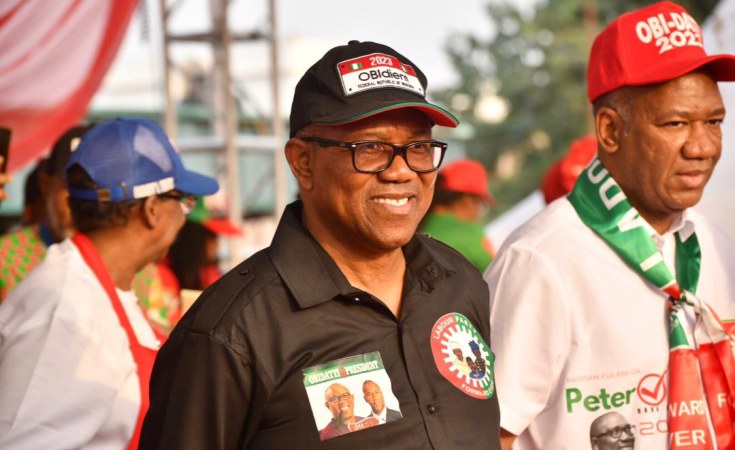First results have been published in Nigeria's general elections after a weekend of delays and disruptions. Three front-runners emerged in a race to replace outgoing President Muhammadu Buhari.
Nigeria's election commission published results for just one of 36 states on Sunday evening, as the country's delayed general election started drawing to a close.
Results from 35 other states and Abuja were still pending. This followed logistical problems and security concerns that caused voting delays. Although voting was scheduled to conclude on Saturday, people across much of the country continued casting ballots in the general election, which also included choosing a new national legislature.
"We are aware there will be many more states concluding tonight and [tallies] coming to Abuja," Mahmood Yakubua, chairman of the Independent National Electoral Commission, said in the capital.
Bola Tinubu well ahead in small state of Ekiti
In the western state of Ekiti, one of the smallest and least populous in the country, the three suspected front-runners nationwide were leading the race.
Incumbent President Muhammadu Buhari is leaving office after serving the maximum permitted two terms.
The candidate for Buhari's All Progressives Congress party is 70-year-old Bola Tinubu. He led the way comfortably in Ekiti with 201,494 votes, according to the commission.
Atiku Abubakar, 76, represents Nigeria's other traditional powerhouse the People's Democratic Party; he had secured 89,554 votes in Ekiti.
And the surprise third horse in the race, Peter Obi, of the Labour Party, who had gained traction particularly among the young, was a distant third on 11,397 votes.
However, Ekiti state represents just a tiny fraction of the almost 90 million Nigerians eligible to vote across Africa's most populous country.
The vote takes place amid Nigeria's long-running and largely stagnant campaign against militants from the Islamist group Boko Haram in the northeast, a series of high-profile kidnappings for ransom, double digit inflation and pressures on prices of core products like food and fuel, and fuel and cash shortages in the run-up to the election.
More to follow...
(AFP, AP, Reuters)


